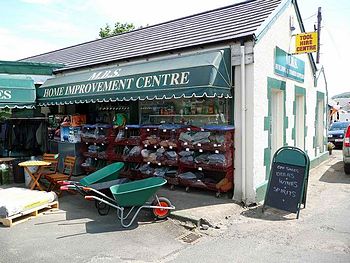 |
| (Photo credit: Wikipedia) |
Management education has offered a plethora of programs that provide food of thought for all types of businesses, be it software world, or the industrial, or anything.
The enterprises demand professionals who can help the smooth functioning of the businesses by coming up with innovative ideas to help the enterprises grow.
One such specialization is MBA in Finance, which has given the finance industry the best brains and has brought about revolution in the economic sect of the countries across the world.
MBA in Finance is the specialization which the maximum number of MBA aspirants look out for. There are numerous possibilities in this field and the career options are also vast.
MBA in Finance is the specialization which the maximum number of MBA aspirants look out for. There are numerous possibilities in this field and the career options are also vast.
In countries like India, the trend is quite young as compared to other nations, but nonetheless, there is a healthy demand for qualified degree holders in both public and private sectors. In last few years, the trend has been catching up exponentially.
Besides, the regular compulsory courses being taught in an MBA program, there are courses in subjects like Analysis and Management of Financial Services, Corporate Valuation, Financial Statement Reporting, Insurance Management, International Finance, Management Control System, and Investment Management, Taxation and Tax Planning.
To pursue any course in MBA, you certainly need to choose the right B school for yourself. B schools argue that MBA is the best course to invest in oneself, but what they won't tell you is that they also need your money (pun intended)!
Coming back to the point, most of the students remain confused about the B school they want to get into.
Besides, the regular compulsory courses being taught in an MBA program, there are courses in subjects like Analysis and Management of Financial Services, Corporate Valuation, Financial Statement Reporting, Insurance Management, International Finance, Management Control System, and Investment Management, Taxation and Tax Planning.
Selecting the B School
To pursue any course in MBA, you certainly need to choose the right B school for yourself. B schools argue that MBA is the best course to invest in oneself, but what they won't tell you is that they also need your money (pun intended)!
Coming back to the point, most of the students remain confused about the B school they want to get into.
While selecting for a B-school, the students need to consider different aspects such as alumni networks, faculty, infrastructure, placement record, specialized courses as well as foreign affiliations, among others.
The overall objective of the MBA in Finance is to train professionals interested in the investment process by making use of different types of models, techniques and tools to facilitate and improve the performance of investors in the securities markets, and financing in the company.
The growth prospects are high after an MBA degree in finance and the opportunities are immense. Banks, financial consultancies and financial institutions are the temples of employment for the candidates with an MBA in finance.
The Education
The overall objective of the MBA in Finance is to train professionals interested in the investment process by making use of different types of models, techniques and tools to facilitate and improve the performance of investors in the securities markets, and financing in the company.
Career Prospects
The growth prospects are high after an MBA degree in finance and the opportunities are immense. Banks, financial consultancies and financial institutions are the temples of employment for the candidates with an MBA in finance.
Entering the world of consumer and investment banking, corporate finance and international finance are also some of the options. If you get hands on experience working with some of the important government or private sector bodies, your career growth can be really interesting.
The job market is already on the path of recovery and to meet the demands for finance related issues, the businesses seek professionals having a degree of MBA in finance. The functional area includes banks, non-banking financial companies (NBFC), insurance companies, financial advisory, and consultancies, among others.
The salary packages are directly proportional to the B school from where you have graduated. Better the reputation of the school, heavier will be the salary package. Kind of business school you graduate from. Finance MBA degree holders are known to have got the creamiest offers from the best of companies in the related industries.
MBA courses are aimed to bring together the potential entrepreneurs with some really creative ideas that can have positive effects on business as a whole. India has emerged as a fast growing economy globally, which is all set to be included amongst the top three economies by end of this decade.
Career opportunities
The job market is already on the path of recovery and to meet the demands for finance related issues, the businesses seek professionals having a degree of MBA in finance. The functional area includes banks, non-banking financial companies (NBFC), insurance companies, financial advisory, and consultancies, among others.
The salary packages are directly proportional to the B school from where you have graduated. Better the reputation of the school, heavier will be the salary package. Kind of business school you graduate from. Finance MBA degree holders are known to have got the creamiest offers from the best of companies in the related industries.
On a Concluding Remark!
MBA courses are aimed to bring together the potential entrepreneurs with some really creative ideas that can have positive effects on business as a whole. India has emerged as a fast growing economy globally, which is all set to be included amongst the top three economies by end of this decade.
Such a tremendous economic growth asks for some new projects and new projects create a number of job opportunities. The increased demand for some best managers is an obvious outcome of such developments.
Author Bio: Rashmi Karan has been writing professionally since 2010, most recently publishing for various websites on topics like employment and education.
Author Bio: Rashmi Karan has been writing professionally since 2010, most recently publishing for various websites on topics like employment and education.





